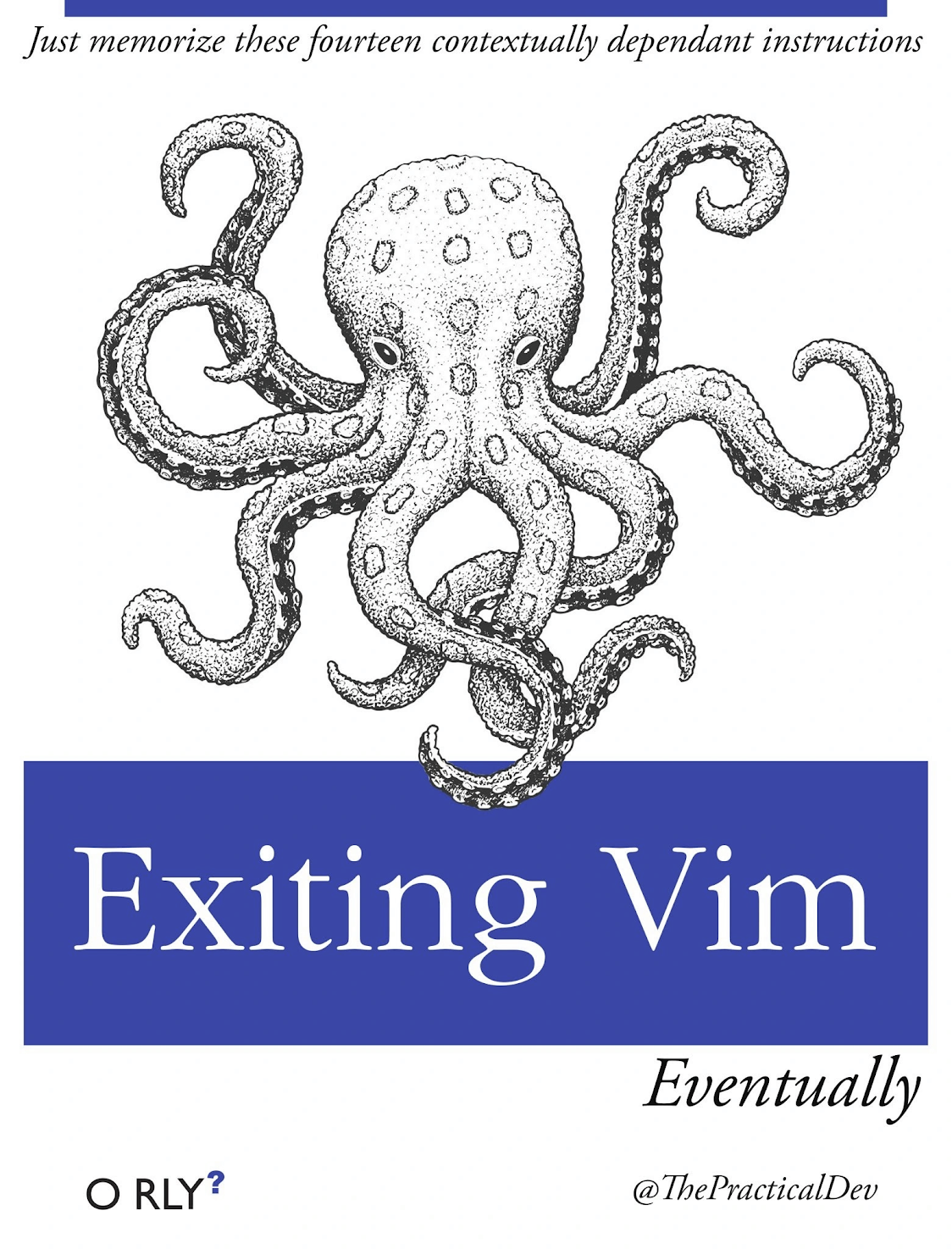That after getting used to Linux I will hate to be forced to use less free operating systems.
Linux
From Wikipedia, the free encyclopedia
Linux is a family of open source Unix-like operating systems based on the Linux kernel, an operating system kernel first released on September 17, 1991 by Linus Torvalds. Linux is typically packaged in a Linux distribution (or distro for short).
Distributions include the Linux kernel and supporting system software and libraries, many of which are provided by the GNU Project. Many Linux distributions use the word "Linux" in their name, but the Free Software Foundation uses the name GNU/Linux to emphasize the importance of GNU software, causing some controversy.
Rules
- Posts must be relevant to operating systems running the Linux kernel. GNU/Linux or otherwise.
- No misinformation
- No NSFW content
- No hate speech, bigotry, etc
Related Communities
Community icon by Alpár-Etele Méder, licensed under CC BY 3.0
This so much. I absolutely cannot stand Windows anymore.
Windows is so bad
Once you go FOSS, you never go back.
How to quit vim.
Just read this book:

Used to use gedit, the found nano and it was awesome. Then found Vim... I RAN back to nano haha
I hear you 😁. For whatever reason I stuck with the Vim tutorial and did it a few times over the years. Now I'm using the IdeaVIM extension in IntelliJ - that mode system is just sooo powerful. It has a horrible learning curve, yes, but if you manage to stick with it, it pays huge dividends. I probably know, like, 18% of all commands, and it completely changed how I edit files (mostly for coding, but also text).
I remember, back in the day, I asked on IRC how to edit a file in Linux. Someone said vi. Little did I know that in chat someone said, the next question is how do I quit. I asked that exact question. Yes chat erupted.
I guess the main things would be:
- As a beginner, don't bother trying to dual boot -- If you still need a Windows box, get some cheap hardware to do your Linux work on. It's too easy to screw up both systems otherwise.
- Don't get too hung up on a specific distro, the better you are at dealing with different configurations, the better prepared you will be for whatever comes. Once you've gotten one set up, don't be afraid to just try a different one.
I never had a problem dual booting, even as a beginner. I always kept everything on two separate drives, though, each with their own EFI partition.
I kept them on the same drive, different EFI partitions.
I did the opposite, have always dual booted my laptops and had win on my PC until quite recently now that I'm comfortable enough not to need a safety net anymore
The 1:1 windows:Linux replacement is just a means to keep you on Windows. Once you learn Linux, you'll come to understand how much of a farce it is and how it's designed to keep you away
I learned to never settle. If you don't like the default workflow of Gnome, try some extensions, or even a different DE. Same with Package Managers. If you don't like the syntax, make an alias. Don't just "deal with it". Windows has brainwashed people into thinking that there is only one way to do a thing.
Trying not to make it windows.
There's a lot of conveniences that Windows comes default with.
When I switched to Linux, my immediate goal was to find alternatives for EVERYTHING. That lead to being disappointed by a lot.
Understanding Linux and also recognizing there's a lot of shit I don't need (that windows was giving me for the sake of VALUE) was a game changer.
Understanding Linux and also recognizing there's a lot of shit I don't need (that windows was giving me for the sake of VALUE) was a game changer.
This 100%! After using Linux for the past few years I've realized a lot of the crap windows has by default is stuffed in there to have something to market.
Distrobox exists, so one is not bound to use a specific distro just because it packages some of the apps/binaries they require.
Installed distrobox on NixOS because I was worried being limited to only nixpkgs and have not touched it once lol
Same goes for the windows VM except for the time I needed to run excel macros for work
So enjoying immutable fedora with AUR support. Cannot be overstated...
To start sooner.
I wish I'd known how much of a pain in the ass having an NVIDIA card would be. I would have gotten a different computer.
That even though you are running an LTS version of Ubuntu (e.g. Ubuntu 22.04), some packages that have arrived over a year ago on e.g. 23.10 will never arrive on 22.04.
Example: i3-wm 4.22 or up (https://packages.ubuntu.com/search?keywords=i3&searchon=names&suite=jammy§ion=all).
After switching to Linux I wish I knew how to report bugs. I'm a qa tester and I notice so many little things that can be replicated and fixing them would polish the user experience. But there are so many layers I don't know who to report the issue to. My first thought wasto report it to the distro forum and have the more technical people there take a look at the issue then escalate it to the distro maintainers or the actual software devs.
Another thing I wish I knew, was how to get my 2nd hdd to mount automatically. I fucked to my system 4 times(and recovered it) trying and then had to get my sys admin friend to do it for me.
Reporting KDE bugs is still extremely inconvenient.
There should be a 1-click option just to submit an automatically collected data dump, maybe with an optional text field we can write. Just to help providing some data, without all the hassle of creating an account, answering N questions, and following up with answers - sometimes I do care about the issue, most times I don't, but still want to flag that something wrong happened so they're aware of it.
I have the impression that a lot of bugs and random crashes go unnoticed because users don't bother to go through the process of opening a bug report - and they shouldn't need to, nor know how to.
My first time I was presented with the bug reporter I thought it was cool, but then it said I had to have all the debug symbols installed so it could unwind the call stack. Ok I thought, and searched apt for a little. But I couldn't find them all as there is not a standard naming scheme, so that effort was wasted. I wish their bug reporter would auto download all debug symbols needed.
When you're just trying to get work done: pick a solid, well-tested high-profile distribution like Fedora, Pop!_OS, or Debian (or Ubuntu). Don't look for the most beautiful, or most up-to-date, or most light-weight (e.g. low CPU usage, RAM, etc.). Don't distro hop just to see what you're missing.
Of course, do those things if you want to mess around, have fun, or learn! But not when you're trying to get work done.
That I shouldn't care as much about installed packages I no longer use. Sure, going through installed programs and cleaning up from time to time is ok, but no need to panic if something sticks around.
Especially when I installed something manually needing dependencies for programming, I tend to write down names of installed packages and then managing it manually, because I wasn't yet aware what their names mean. Now using same OS for over a year, heavly testing stuff, having multiple desktop enviroments and not cleaning it up my system partition is taking less than 30GB, compared to 1TB disk it's nothing.
to keep a pendrive version of windows-to-go around for installing firmware and BIOS updates. It's impossible to create one without windows already installed. Hopefully the open firmware updater in Pop OS! catches on or more manufacturers release Linux updates.
TIL there's tab completion lol
Tab completion, history, history search, you name it
Unmounting removable drives after writing to then is crucially more important than on Windows
Gnome is better on 1920 than in 1366. XFCE is better on 1366...
And Ubuntu sucks..
That you can use any DE on any distro
tab completion
Nothing, to be honest. It just worked and I loved it.
That just like windows and Mac if it doesn't support that platform prepare for headaches. Unlike windows and Mac you can get things that aren't supposed to run on Linux to run thanks to great tools like wine, proton, and even waydroid. But if you wanna avoid headaches just stick with what's supported for the most part.
Though I enjoy and am currently using #LinuxMint, I wish I learned about #Wayland sooner. I didn't understand why game performance felt so off with my dual monitor setup for several months. I have since dabbled with an #Ubuntu #Gnome DE for some gaming, and Wayland support has alleviated those problems. However, I plan to look into other options when I've organized my data a bit more and establish proper backups. Learning #Bash, #scripting, #aliases, #workspaces and tweaking #hotkeys were also useful for making my workflow into what it is. Also, I wish I knew how bad #ProtonVPN and #ProtonDrive #Linux support would be. Despite getting used to their #CLI applications, the absence of feature parity is immensely disappointing.
